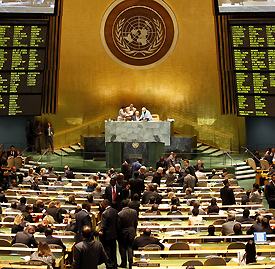What Is This Session About?
During the week of May 14-18, 2018, the Permanent Peoples’ Tribunal Session on Human Rights, Fracking and Climate Change asked its judges to apply the standards of international human rights law and render an advisory opinion on the following four questions:
“The petitioners seek an advisory opinion from the Tribunal on four fundamental legal questions associated with the impacts of fracking and climate change.
- First, under what circumstances do fracking and other unconventional oil and gas extraction techniques breach substantive and procedural human rights protected by international law as a matter of treaty or custom?
- Second, under what circumstances do fracking and other unconventional oil and gas extraction techniques warrant the issuance of either provisional measures, a judgment enjoining further activity, remediation relief, or damages for causing environmental harm?
- Third, what is the extent of responsibility and liability of States and non-state actors for violations of human rights and for environmental and climate harm caused by these oil and gas extraction techniques
- Fourth, what is the extent of responsibility and liability of States and non-state actors, both legal and moral, for violations of the rights of nature related to environmental and climate harm caused by these unconventional oil and gas extraction techniques?”
States, as primary duty-bearers for protecting the human rights of their citizens, were the central focus of this investigation, though fossil fuel corporations were implicated in some witness testimony.
The Tribunal’s panel of ten judges — most of whom were jurists experienced in international human rights law and expert in this field, and some of whom were other highly respected members of civil society — heard testimony submitted by victims, witnesses and experts in various fields, heard attorneys’ arguments.
The judges, all selected independently by the PPT, are deliberating and are expected to issue their Advisory Opinion on the above questions later this year.
Evidence was collected via submissions to this website, via the pre-PPT tribunals, and by amicus curiae briefs submitted by twenty NGOs from seven different countries on five different continents. Evidence includes personal witness narratives (submitted via this site), expert testimony on the practices and impacts of fracking, findings from preliminary hearings in other countries, peer reviewed research, reports from citizen groups, Human Rights Impact Assessments and amicus curiae briefs.
The Tribunal was asked to provide an Advisory Opinion on the above four questions with a view to the following six areas of concern:
- Human physical and mental health.
- Climate change, including both the human and earth rights dimensions, and to include present and future generations.
- Environmental, ecosystem, atmospheric, hydrologic and seismicity concerns relevant to both human rights and earth rights.
- Public participation concerns related to decision-making about oil and gas exploration, extraction and policy-making.
- Fuels infrastructure concerns related to human and earth rights, including exploration, drilling, extraction, transport and end-use processes as well as infrastructure needed for transport, storage and export of product and waste (e.g., pipelines, storage facilities, waste treatment facilities, waste water disposal, LNG terminals, compressor stations, etc).
- Social and cultural impacts on individuals, families and communities that impact their human rights.
Four preliminary, shorter tribunals – two in Ohio, one in Virginia and one in Australia – were conducted in 2017 and early 2018. Testimony and results from those pre-PPT tribunals were submitted in March for review by attorneys and judges prior to the plenary hearings.
Note:
A definition of what this Tribunal understands “fracking” to mean can be seen here.

